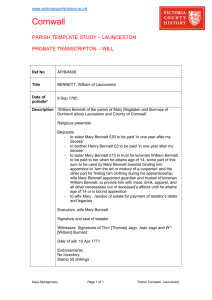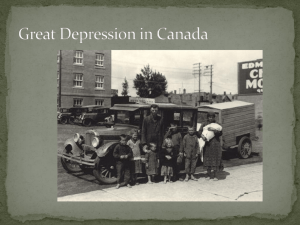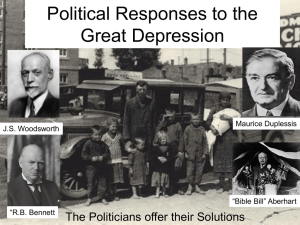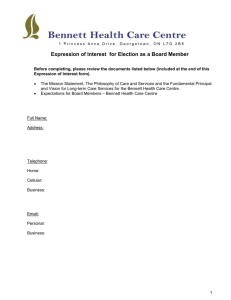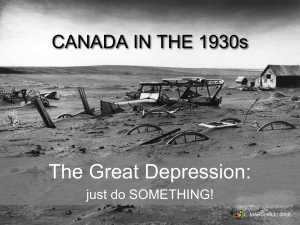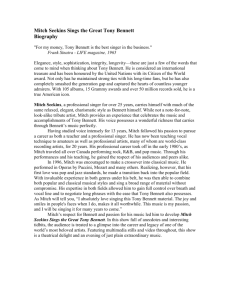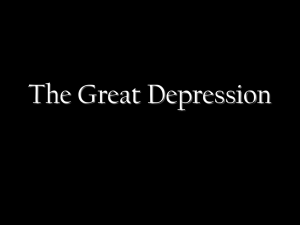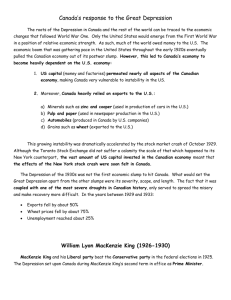Unit 2 - Lesson 7 - Bennett`s New Deal
advertisement
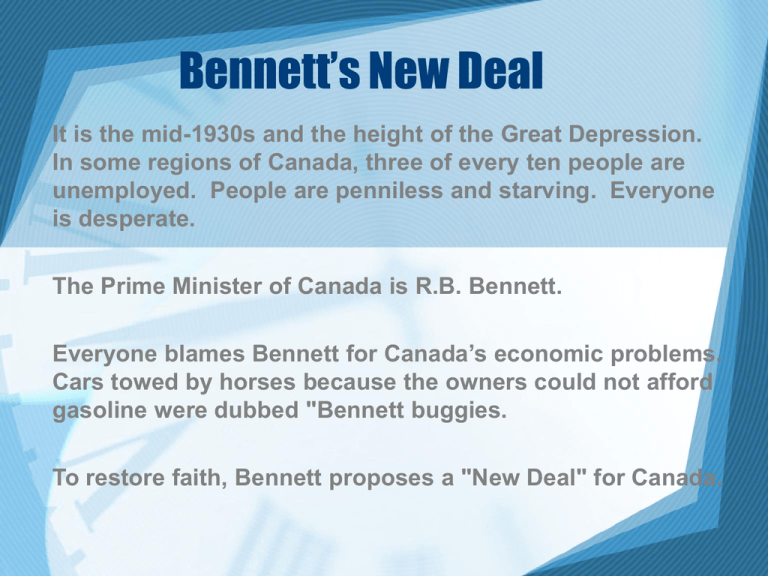
Bennett’s New Deal It is the mid-1930s and the height of the Great Depression. In some regions of Canada, three of every ten people are unemployed. People are penniless and starving. Everyone is desperate. The Prime Minister of Canada is R.B. Bennett. Everyone blames Bennett for Canada’s economic problems. Cars towed by horses because the owners could not afford gasoline were dubbed "Bennett buggies. To restore faith, Bennett proposes a "New Deal" for Canada. Bennett’s New Deal In the USA, President Franklin D. Roosevelt was enacting a “new deal” policies to restore the US economy. Following the USA success and seeking to restore confidence in the Canadian consumer, Bennett proposed a "New Deal" for Canada. Thinking about the Depression, what do you think Bennett’s New Deal would include? Remember, people are starving, unemployed, poor, homeless and desperate. The people with jobs work long hours for little pay. Unemployed men are sent to work camps in Northern Canada. Nearly $2 million in relief has been provided, but it is controlled by individual city governments. Bennett’s New Deal Bennett's "New Deal" included: • a more progressive taxation system • a maximum work week • a minimum wage • closer regulation of working conditions • unemployment insurance • health and accident insurance • a revised old-age pension • agricultural support programs The New Deal would be very interventionist with greater taxation, new and broad tax spending, and direct federal involvement in the lives of everyday Canadians. Bennett’s New Deal Within Canada’s constitution, welfare falls under jurisdiction of the provinces. Canada’s Supreme Court ruled against Bennett. Bennett did not win the next Canadian election. In effect, Canadians were rejecting Bennett’s ideas about a new Canada. Mackenzie King became Canada’s new Prime Minister. In 1938, Bennett abandoned Canada and sailed to England. Yet, many of Bennett’s ideas are very strong today. Canadians identify with the Canadian Broadcasting Company (CBC), the Bank of Canada, national marketing boards, minimum wages, etc.

